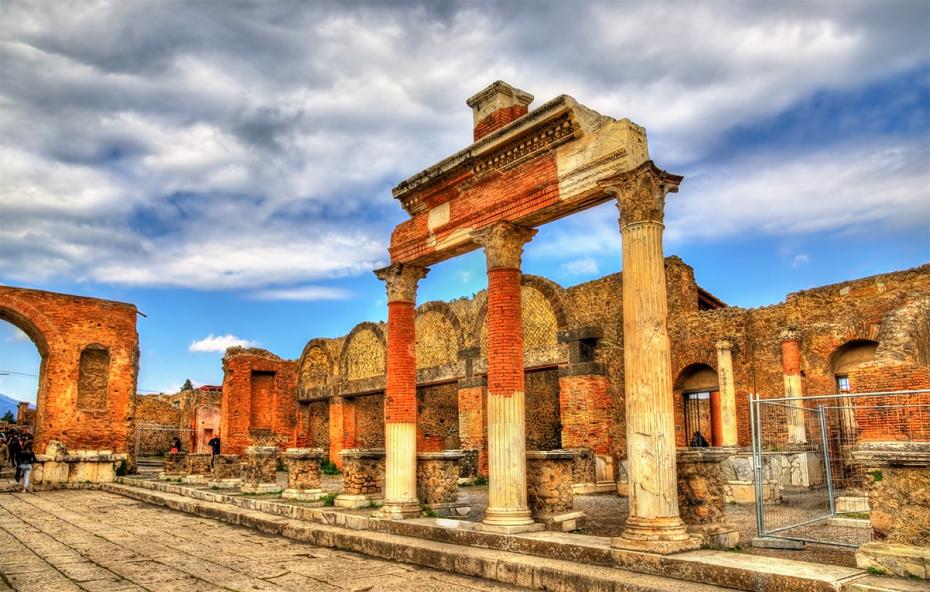2016 could be the year when crowdfunding saves Italy. Or parts of Italy, at least. In February some ambitious children launched a crowdfunding project to buy the idyllic island of Budelli and re-name it L’Isola dei Ragazzi, keeping it out of the grasp of rich investors. They’re not the only ones campaigning to save Italy by unconventional means, as groups in Italy are thinking up new and creative ways to raise funds.
With the greatest number of UNESCO sites in the world, Italy has an enviable wealth of artistic and archaeological treasures. But ancient artwork and buildings inevitably become damaged over time, and some are in need of urgent restoration work. While the Italian government recently pledged €300 million towards the preservation of cultural heritage, some fear it may not be enough.
One solution is private sponsorship. The Colosseum has recently been undergoing some much needed restoration work thanks to funding from luxury brand Tod’s, while the restoration of the Trevi Fountain and the Spanish Steps have been funded by Fendi and Bulgari. The generosity of wealthy companies may seem like an ideal solution, but there are concerns that this could lead to commercialization – tacky adverts covering up monuments – and potential exploitation.
As former mayor Ignazio Marino pointed out, Rome does not just belong to the Romans; “It belongs to mankind”. The same could be said for the rest for Italy. Considering that the world is full of people who love Italy and its extraordinary cultural heritage, it could be time to look beyond governments and businesses, and to reach out to the general public.
Since its foundation in 2014, the non-profit organisation LoveItaly has been finding alternative ways to raise funds. Crowdfunding has already proven to be an effective tool, with many members of the public donating to campaigns in Rome and Pompeii. Italy lovers around the world have paid for the restoration of a magnificent marble sarcophagus in the Corsini Gallery, and are contributing towards the preservation of a unique cubiculum (bedroom) in the House of the Centaur in Pompeii. Particularly generous donors are rewarded with invitations to special events and the opportunity to meet the experts working on the restoration projects, but of course, every little helps. Even those who donate small amounts get the satisfaction of seeing the final result – a priceless work of art restored to its former glory, or a Roman building saved from collapse.
In addition to public funding, LoveItaly also works with various partners and sponsors. One of its newest partners is the tour company Through Eternity, which is donating part of the profits of its private tours in Pompeii towards LoveItaly’s Pompeii restoration project. Some successful companies in the tourism industry are starting to realise that they can also make a difference, helping to preserve Italy’s most popular attractions.
So far, LoveItaly’s crowdfunding campaigns have mainly been targeting the Italian public, encouraging people to raise funds for their local cultural heritage. Tracy Roberts, the vice-president of LoveItaly, is particularly optimistic about what younger people can contribute, describing the younger generations as “an incredible resource” for Italy. Many of the people involved in the organisation are university students, and large numbers of young Italians are starting to feel a sense of responsibility for their country’s cultural heritage.
There will always be those who think that the government should pay for everything, or that ticket prices should be enough to cover the costs of restoration. But the fact is that preserving Italy’s heritage is expensive, and with nearly 50 million tourists visiting Italy every year, it’s clear that Italians are not the only ones to benefit from their rich history and culture. If the rest of the world starts to give something back, every small act of generosity will eventually be rewarded. Contribute to a crowdfunding project now, and your great-grandchildren will be able to walk through a well-preserved Pompeii, or admire ancient artwork that could have easily been lost forever.
Alexandra Turney works for Through Eternity Tours.




























